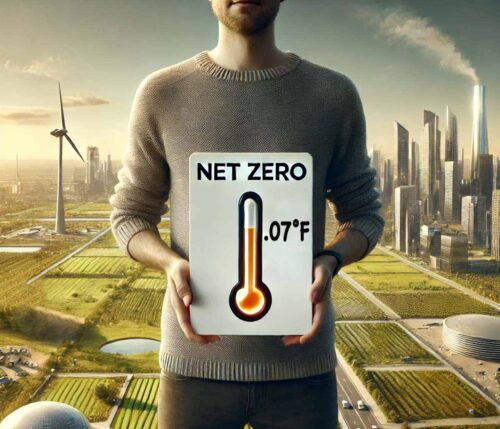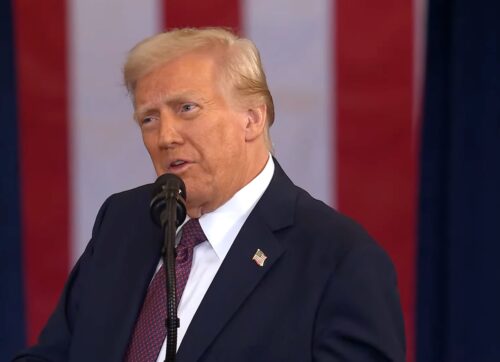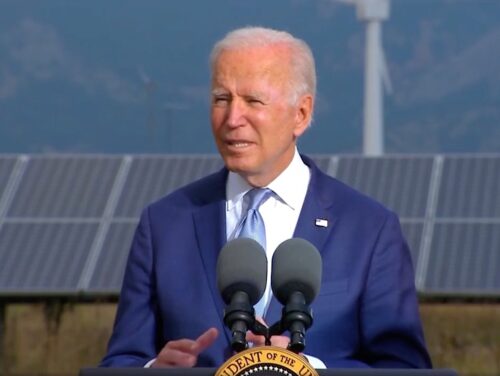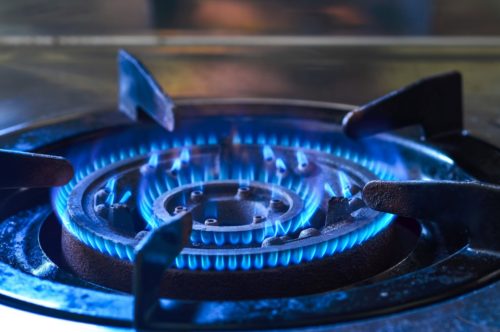Enthusiasm for a new generation of nuclear technology has gripped politicians across the world. The United Kingdom is the latest country to take action, with the Labour Party government set to revise planning rules in February 2025 with a goal of restoring the country’s position as “one of the world leaders on nuclear.” Key to this plan is accelerating the deployment of a new generation of miniature nuclear and small modular reactors (SMRs)—compact units that generate less power than traditional nuclear reactors but can be assembled onsite.
Similarly, in Australia, as part of the Australian campaign for a federal election expected in late April, the Coalition Party led by Peter Dutton unveiled a plan in December 2024 to adopt nuclear energy as a solution for providing efficient and affordable electricity. The proposal—which has drawn significant opposition from the public, as it would overturn a decades-old bans on nuclear reactors—is to build conventional nuclear stations and SMRs, with a goal of having them running by the late 2030s. The plan includes the announcement of seven proposed reactor locations across the country.
The appeal of SMRs is manifold. The first is that they can be sited on locations that are not suitable for larger nuclear power plants. Prefabricated units of SMRs can be manufactured and then shipped and installed on site. Their flexible design allows them to use various coolants—such as light water, liquid metal, or molten salt—depending on the specific technology. And in addition to contributing to the decarbonization of a country’s energy mix, SMRs can play a role in ensuring grid stability in systems with a growing share of renewables as well as rising electricity demand.
SMRs also offer significant climate benefits, particularly in providing low-carbon baseload electricity. Nuclear power, including SMRs, has a minimal carbon footprint, as highlighted in a 2022 report by the United Nations Economic Commission for Europe. In contrast, coal-fired power plants emit substantially higher levels of carbon dioxide. This stark difference highlights the potential of SMRs to reduce greenhouse gas emissions significantly when replacing fossil fuels in electricity generation.
Importantly, SMRs and renewables are not mutually exclusive; rather, they can complement each other in an integrated energy system. They are potentially suited to replace fossil fuel plants—including those powered not only by coal but also gas—and can be integrated into energy hubs alongside other renewable energy sources and green hydrogen production, creating a more resilient and balanced energy ecosystem.
Additionally, the U.K. government expects to create thousands of highly skilled jobs and drive economic growth through their development. The country’s strategy aims to position national champion Rolls-Royce as a key player in the international market, alongside other major companies such as the U.S.-based Holtec and GE Hitachi as well as the Canadian-owned Westinghouse.
There are high expectations for SMRs, but there is also a major challenge: They have been touted to require lower capital costs and shorter construction times than the traditional large-scale nuclear reactors. However, in reality, SMRs are facing similar pitfalls as large-scale nuclear power, and the disappointing results from the first pilot project in the United States should serve as a cautionary tale for governments and developers.
A project that planned to build an SMR in Idaho to serve energy to a consortium of small public utility districts in Utah was shut down in November 2023. The NuScale project, developed by an Oregon-based company born at Oregon State University, experienced significant financial challenges and cost surges: Initial estimates in 2015 anticipated a bill of $3 billion for 12 reactors, which then rose to an estimate of $9.3 billion in 2023 for a reduced capacity, at which point the project became untenable.
The Australian Coalition’s plan claims that its nuclear power development proposal will bring a 44 percent reduction in electricity costs, but those calculations have been questioned by energy experts. In its economic analysis report for 2024-25, CSIRO—Australia’s national science agency—indicated that nuclear SMRs are the highest cost category of all of the energy types assessed. Estimates put their levelized cost of energy at twice as much as for renewables.
Energy experts from the Australian Energy Council have also criticized the Australian Coalition’s timeline for nuclear development as unrealistic. They argue that it is highly improbable for Australia, which does not have any nuclear workforce or regulatory framework, to complete all the necessary steps—such as conducting geological and environmental assessments, then commissioning and constructing a reactor—before the early 2040s.
Governments in Europe are also grappling with the issue of costs: The European Commission launched the “European SMR Pre-Partnership” in 2023 in order to assess the enabling conditions and constraints, particularly financial ones, involved with constructing and operating SMRs in Europe over the next decade and beyond. In early November 2023, the Commission announced plans to establish an industrial alliance for SMRs, strengthening efforts to advance nuclear innovation and reduce the costs of deployment across Europe.
Still, countries such as Sweden and Italy are struggling to navigate their plans for reviving nuclear development. In Italy, Prime Minister Giorgia Meloni’s government is pushing for a nuclear revival despite the country having decommissioned its reactors following a 1987 referendum in the wake of the Chernobyl disaster. The Meloni government has announced plans to build new reactors as part of its energy strategy. To support this effort, the public-private National Platform for Sustainable Nuclear Power was established in Rome in September 2023, tasked with coordinating and advancing next-generation nuclear technologies. However, the initiative has shown little tangible progress so far.
In Sweden, the center-right government elected in 2022 has plans to build more nuclear infrastructure after a period of retiring old plants. From 2014-2022, a center-left government had overseen the shutdown of several reactors. The state-owned utility Vattenfall permanently shut two reactors, in 2019 and 2020, earlier than planned, saying it was not economic to keep them operating.
Although some Swedish politicians have called for restart of the units, Vattenfall management has said that a restart is not financially or technically feasible. Despite this, in June 2023, the Swedish government replaced its energy target of 100 percent “renewable” electricity by 2040 with 100 percent “fossil-free” electricity, allowing proponents to push forward with plans for new nuclear plants.
In November 2023 the government announced plans to construct two large-scale reactors by 2035 and the equivalent of 10 new reactors, including small modular reactors, by 2045. However, once again there are issues with the financing and the cost for the Swedish taxpayer.
From an economic standpoint, detailed technical analyses clearly show that not only is nuclear power is the most expensive option, but also that cost estimates for nuclear and renewable energy technologies have been trending in opposite directions: Nuclear is going up in expense, whereas solar energy and batteries are becoming cheaper.
In the case of Germany, the Fraunhofer-Gesellschaft, one of the country’s leading organizations in applied research and innovation in key future technologies, analyzed the levelized cost of electricity (including investment, operation, and maintenance) for different energy technologies. The cost comparison showed that nuclear would be by far the most expensive of all available options.
And Christian Democratic Union leader Friedrich Merz, likely Germany’s next chancellor, has already withdrawn his earlier proposal to rebuild the decommissioned nuclear stations from the Angela Merkel era, citing both economic and technical infeasibility.
It is fair to say that nuclear has become a cuckoo in the climate policy nest: a potentially disruptive presence during the energy transition. Nuclear power has entered climate policy discussions in various countries in a way that threatens to dominate, divert, or disrupt the focus on other short-term solutions, such as fast deployment renewable energy technologies.
A 2024 study by the Institute for Energy Economics and Financial Analysis found not only that SMRs are still “too expensive” and “too slow” to build, but also that investments in SMRs risk taking resources away from the carbon-free and lower-cost renewable technologies that are available today. The researchers concluded that this could delay the transition from fossil fuels forward significantly in the coming 10 years.
Recent data released by the International Energy Agency’s World Energy Outlook confirmed that renewable energy sources are going to remain the main drivers of the green transition despite the prognosed surge in nuclear energy production; the EU’s nuclear power production dropped from 2010 to 2023, leading the technology’s share in electricity production to fall from 29 percent to 23 percent.
The long construction times of 10-15 years, substantial public financing required, and frequent delays further underscore that this technology cannot serve as a timely climate solution, especially when the U.N. Intergovernmental Panel on Climate Change emphasizes that global decarbonization must accelerate steeply within the five years (carbon dioxide emissions should decline by about 45 percent from 2010 levels by 2030) and continue over the next decades to reach net zero by 2050.
Addressing climate change and achieving decarbonization require the rapid deployment of affordable renewable energy sources, with new nuclear construction potentially playing a complementary role, but not serving as a replacement or substitute for renewables.
Oversimplifications in political narratives risk misleading the public about the true costs and technical feasibility of energy options while unnecessarily framing nuclear and renewables as opposing solutions. To develop effective energy policies, the public must be well-informed about the true costs, construction timelines, and projected future energy expenses, as well as the specific energy needs and constraints of their countries.
















